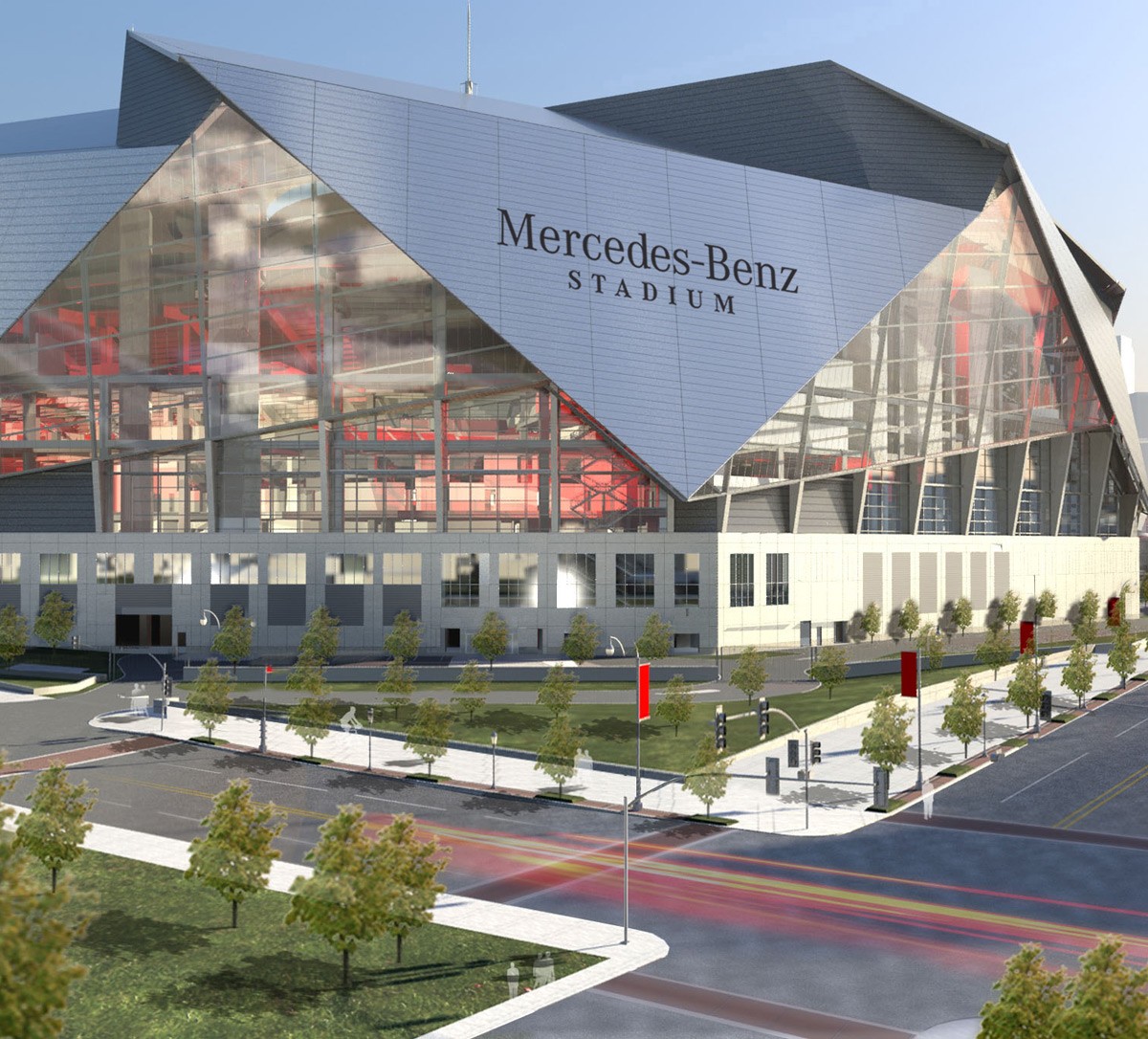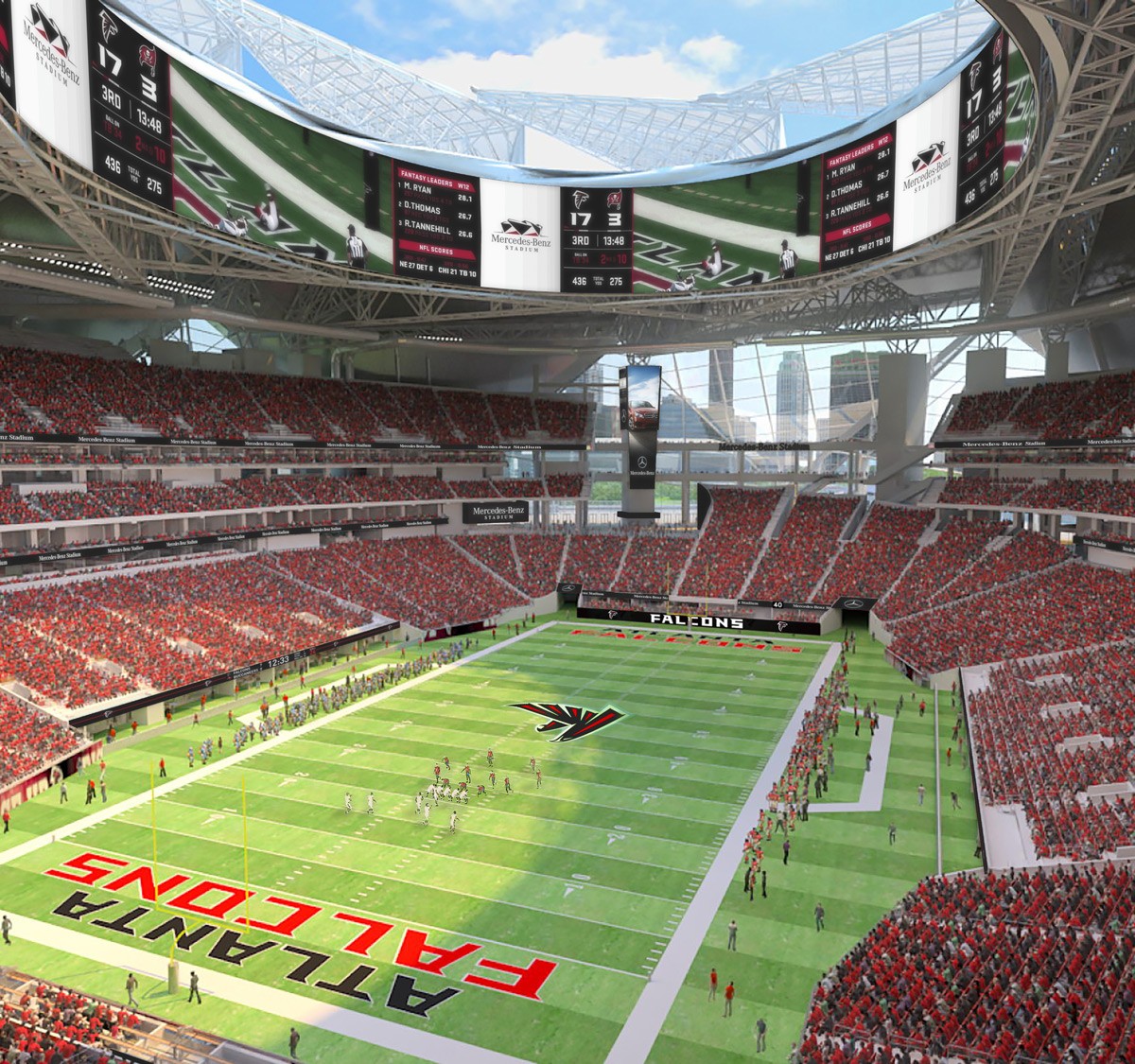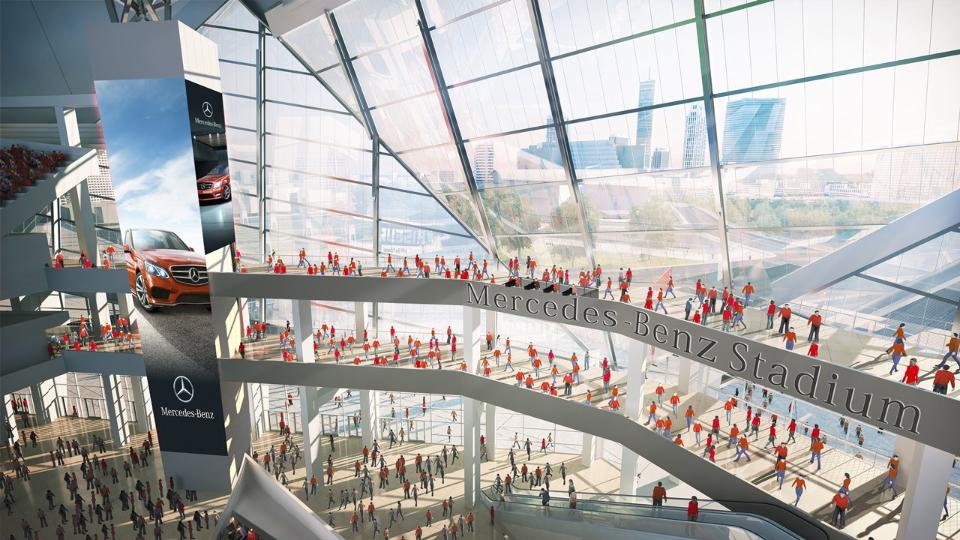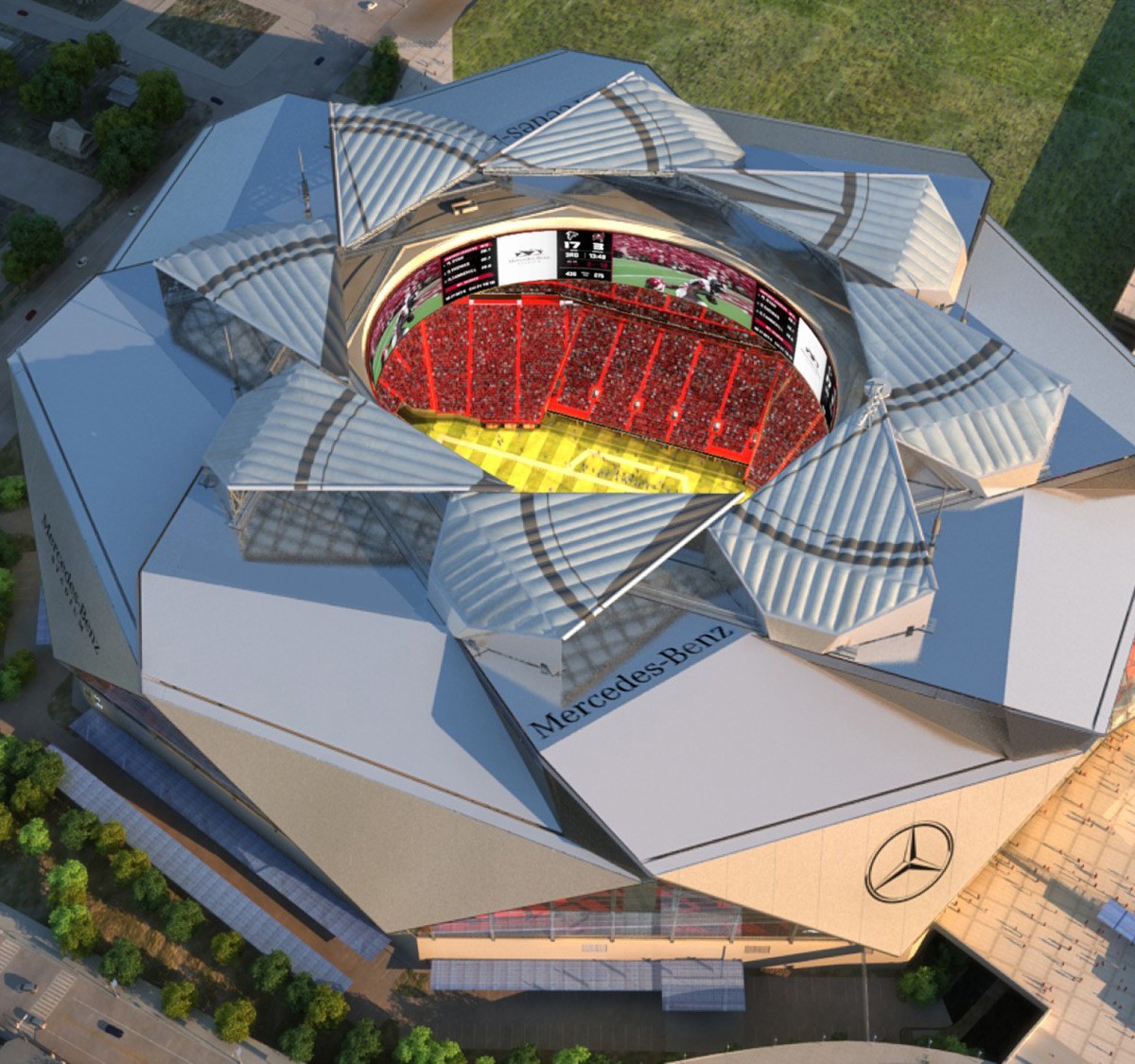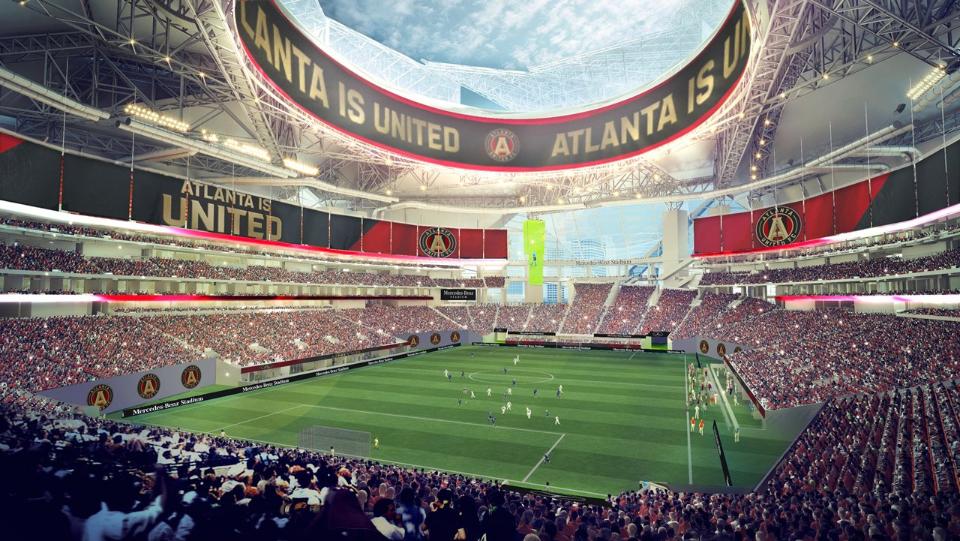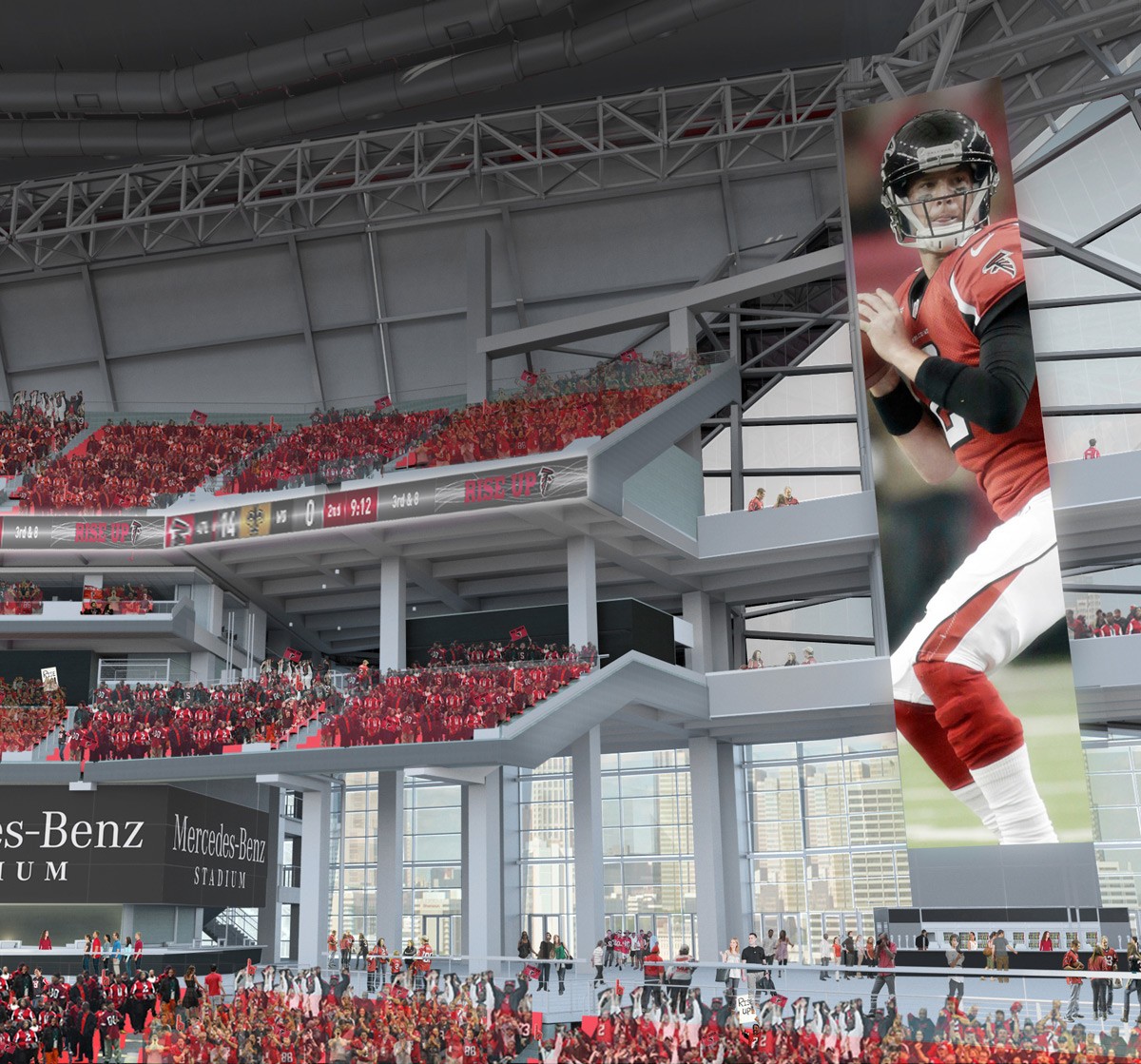In 2017, the Atlanta Falcons will kick off a new era as they open the state-of-the-art Mercedes-Benz Stadium, a retractable-roof venue in downtown Atlanta. The stadium will also serve the MLS’ Atlanta United FC, Peach Bowl, College Football Playoff National Championship, and the SEC Championship Game.
At the beginning of this decade, the Falcons were mulling their options to replace the Georgia Dome—an indoor-only facility that opened in 1992. Although initial concepts called for the construction of an open-air stadium, it was determined in 2012 that a retractable roof would give the proposed venue more flexibility in hosting indoor events. This differed sharply from the original plan—in which the Georgia Dome would have remained open as Atlanta’s primary indoor stadium—because it not only introduced the roof, but also the demolition of the Falcons’ current home.
The end result is a stadium that will cost roughly $1.5 billion, with current estimates putting the private sector contribution at 70%-80% and public funding—through hotel/motel tax dollars—at 20%-30%. Ground was broken at the site of the stadium, which is just in front of the Georgia Dome, in May 2014, while Mercedes-Benz signed on for a significant naming-rights partnership in August of this year. In addition to the naming rights agreement, the Falcons have also landed private partnership deals with SunTrust, IBM, Equifax, Novelis, and American Family Insurance, who signed on in late October.
As the lead architectural firm, HOK has designed a stadium that, when it opens figured to be one of the more unique in the NFL, both from the standpoint of aesthetics and game-day experience.
A noticeable aspect of Mercedes-Benz Stadium is a series of exterior design features that will open the venue up to downtown Atlanta. One of the crucial elements is a floor-to ceiling window in the northeast corner, which provides a glimpse of the stadium from the outside, while giving those inside the facility plenty of natural sunlight and views of Atlanta’s skyline. Also located on this end of the facility will be a 61,000 square foot plaza, which will be open to fans who have gone through security checkpoint on game days.
The retractable roof will consist of eight panels that open in a method that is similar to camera lenses. According to the Falcons, the roof will open or close in less than eight minutes. It is also being constructed with EFTE fabric, a lighter weight material that provides more sunlight exposure than traditional stadium roofs.
While the exterior features of Mercedes-Benz Stadium offer many state-of-the-art elements, the inside has unique qualities unto itself. Perhaps the most striking is a feature that every fan will experience: the videoboard. Rather than a traditional square screen at each end of the field, Mercedes-Benz Stadium will be equipped with a 360 degree circular board that is mounted above the field. The board will stand five stories tall and 1,100 feet, meaning that Mercedes-Benz Stadium will supplant EverBank Field—home of the Jacksonville Jaguars—as the home of the NFL’s largest videoboard.
For Falcons’ games, Mercedes-Benz Stadium will seat 71,000 fans. However, the capacity can be very easily raised or lowered depending upon the event. A series of mechanical curtains will close off the upper and middle levels for smaller events, which will help lower the capacity to just over 29,000 for MLS games. Larger events—such as the Super Bowl, FIFA World Cup, and the NCAA Final Four—will feature a capacity that runs anywhere from 75,000-83,000 fans.
As is typical in most stadiums, seating options will range from traditional reserve seats to state-of-the-art club and suite options. A standout feature is the 100-Yard Bar, which will be located on the stadium’s upper level and run roughly the length of the field. The club level will feature more than 100,000 square feet of indoor space, as well as 7,500 seats, full-service dining and bar lounges, and two private Founders Clubs—the Mercedes-Benz Club, and the SunTrust Club.
Once Mercedes-Benz Stadium opens, it will be showcased plenty of times on major stages. The Falcons’ inaugural season will put a spotlight on the facility, which is also slated to host the SEC Championship Game through at least 2026, and the College Football Playoff National Championship in 2018. The stadium will get a turn at basketball when it hosts the Final Four in 2020.
Down the road, it is also possible that the stadium could make Atlanta a host city for FIFA World Cup games, while a potential Super Bowl looms in the not-too-distant future. Atlanta, along with Miami—whose Sun Life Stadium was profiled here last month—New Orleans, and Tampa is one of the finalists in the bidding for Super Bowls LIII and LIV. If Mercedes-Benz Stadium attracts either of those games, it will mark the third time Atlanta has hosted a Super Bowl.

